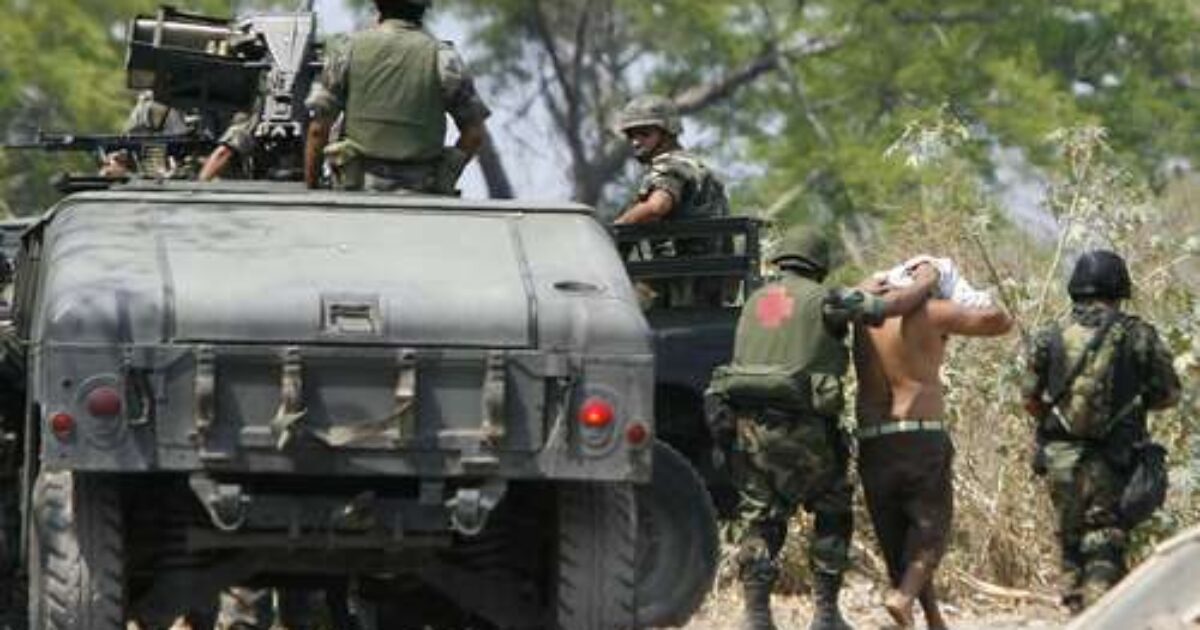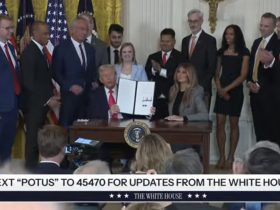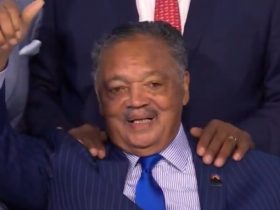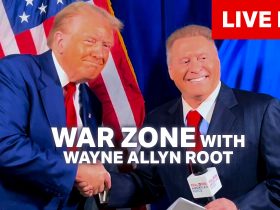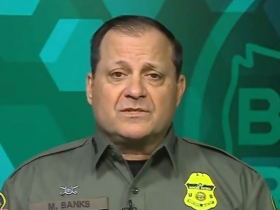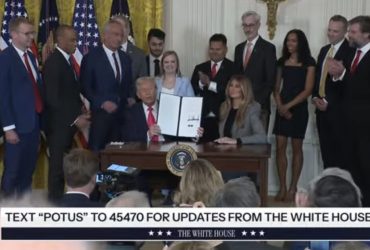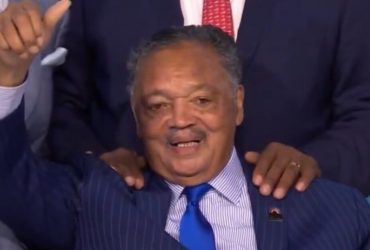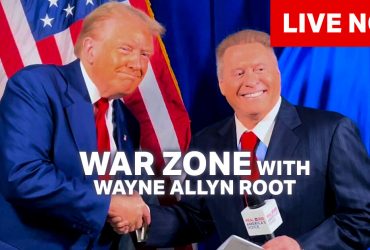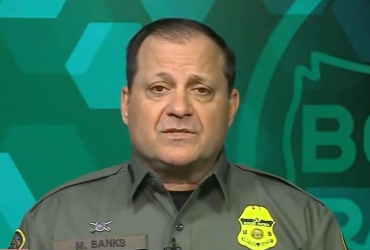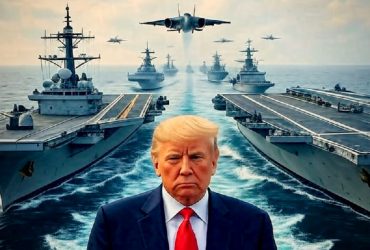Diego Fernández (autor original) / vendida con “copyright compartido” a la Agencia de Fotografía AP México (autor secundario), Public domain, via Wikimedia Commons
President Trump has signed a directive authorizing the Pentagon to deploy U.S. military force against select Latin American drug cartels designated as terrorist organizations. This marks the most aggressive step yet in his administration’s campaign against fentanyl and other illicit drugs, framing the fight as a national security issue and aligning with closed-border policies that have already reduced illegal immigration to a fraction of previous levels.
The directive builds on Trump’s executive order at the start of his second administration, instructing the State Department to designate cartels and transnational gangs as foreign terrorist organizations. In February, the State Department announced the first eight designations, including MS-13 and Tren de Aragua.
The list has since expanded to include two Haitian gangs and Yemen’s Houthis. Last month, the Treasury Department designated Venezuela’s Cartel de los Soles as a Specially Designated Global Terrorist, alleging the group, led by President Nicolás Maduro and other top officials, provides material support to terrorist organizations threatening U.S. security. The administration also doubled the reward for information leading to Maduro’s arrest to $50 million. Venezuelan Foreign Minister Yvan Gil dismissed the move as “pathetic” and “crude political propaganda.”
The U.S. has also designated six major Mexican cartels as foreign terrorist organizations: the Sinaloa Cartel, Jalisco New Generation Cartel, Gulf Cartel, Northeast Cartel, United Cartels, and the Michoacán Family.
Secretary of State Marco Rubio explained that designating cartels as foreign terrorist organizations gives the U.S. government expanded legal authority to act against them.
“It’s no longer a law enforcement issue. It becomes a national security issue,” he said.
Rubio noted that the designation enables the U.S. to deploy broader tools of national power, intelligence agencies, the Department of Defense, and others, to target these groups whenever opportunities arise.
“We have to start treating them as armed terrorist organizations, not simply drug dealing organizations,” he emphasized.
The order establishes an official basis for potential direct military operations, both at sea and on foreign soil, against cartels. U.S. military officials have begun drafting options ranging from Navy destroyer missile strikes on cartel leaders or infrastructure to deeper cooperation with Mexican authorities. This directive reflects Trump’s broader use of military forces for border and immigration enforcement.
More than 10,000 service members have been deployed to the U.S.-Mexico border, and the Pentagon has created three National Defense Areas in Arizona, New Mexico, and Texas, treating them as extensions of military bases to bolster security.
House and Senate Democrats have urged the Trump administration to use the foreign terrorist designation to disrupt cartel financial networks and impose harsher penalties on entities providing material support. Under this framework, it is now illegal for any U.S. person to knowingly provide material support or resources, whether tangible assets, services, or monetary instruments, to designated organizations.
The Department of Justice has already acted, unsealing in June 2025 the first indictment charging a Mexican national with providing material support to the Jalisco New Generation Cartel (CJNG), including supplying grenades. This follows an earlier May indictment against another alleged cartel member on similar charges.
The administration has also implemented the Fentanyl Sanctions Act and the FEND Off Fentanyl Act, granting the Treasury additional powers to target money laundering tied to fentanyl trafficking. Using this authority, FinCEN on June 25 ordered U.S. financial institutions to cut ties with three Mexico-based banks, CIBanco, Intercam Banco, and Vector Casa de Bolsa, accused of laundering millions for cartels and facilitating payments for precursor chemicals used in fentanyl production.
Mexican President Claudia Sheinbaum firmly rejected any prospect of U.S. military intervention. “The United States is not going to come to Mexico with the military,” she said Friday. “We cooperate, we collaborate, but there is not going to be an invasion. That is ruled out, absolutely ruled out.” Sheinbaum said Mexico was informed in advance that the U.S. order on cartels was coming and stressed that it “had nothing to do with the participation of any military personnel.”
Sheinbaum, however, has offered no plan to reclaim Mexico from cartel control. For years, Mexico has largely resisted U.S. demands to secure the border and arrest cartel leaders. At times, often under threats of sanctions or tariffs, Mexico has paid lip service to cooperation, but due to corruption or a lack of political will, its government has taken no meaningful steps to wrest power from the cartels.
The usual suspects in Washington are questioning the legality of President Trump’s directive, particularly the authority to kill suspects without explicit congressional authorization. However, under the War Powers Resolution, the president can deploy U.S. forces abroad for up to 60 days, with a possible 30-day withdrawal period, without an Authorization for Use of Military Force (AUMF) or a formal declaration of war. The president must notify Congress within 48 hours of committing armed forces to military action. But, congressional approval is not required.
Past presidents have exercised similar authority without congressional approval. In 2011, President Obama ordered military intervention in Libya, allowing U.S. combat operations to continue past the 60-day deadline without seeking authorization. And again in 2014, Obama authorized airstrikes against ISIS in Syria and Iraq, repeatedly resetting the 60-day clock by sending new notification letters to Congress. In 2016 alone, his administration conducted over 26,000 airstrikes across seven countries and authorized 542 drone strikes, killing thousands, all without new congressional acts.
Donald Trump has sent a clear message to Mexico and to liberals: the United States will no longer tolerate drugs and criminals crossing the southern border, and he is prepared to do whatever it takes to stop them, even if that means military operations in Mexico.
The post President Trump Orders Military to Take on Drug Cartels – The Flow of Illegal Drugs and Gangs Stops Now! appeared first on The Gateway Pundit.

